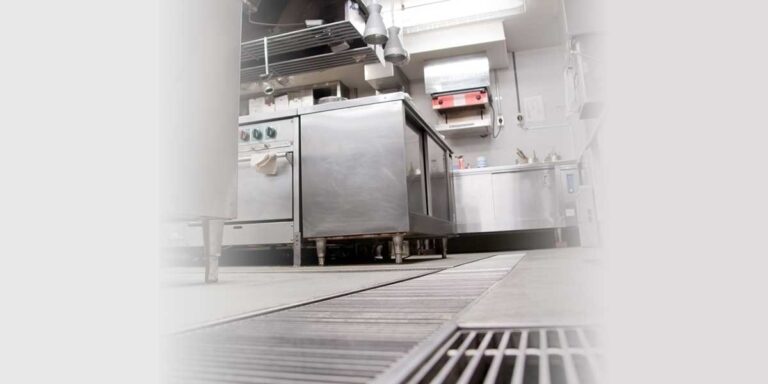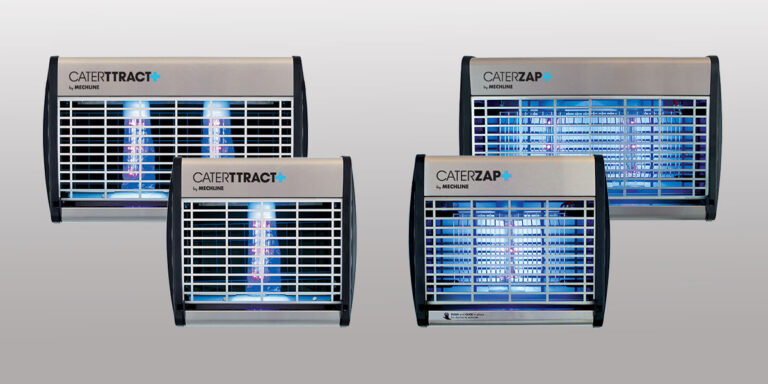GOOD NEWS FOR THE FOOD SERVICES & HOSPITALITY TRADE
It’s potentially very good news for the foodservice and hospitality industry after publication of the recommendations of the Environment, Food & Rural Affairs (EFRA) Committee’s report into waste management in England in late October.
According to WRAP the total amount of waste, including food, packaging and other ‘non-food’ waste, produced each year at HaFS outlets is 2.87 million tonnes, of this, 920,000 tonnes of food is wasted at outlets each year, 75% of which is avoidable and could have been eaten.
The report urges the Government to find ways of diverting more food waste out of the residual waste stream by methods which are economically and environmentally viable and suitable to local circumstances.
Launching the ‘Waste management in England’ report, Chair of the EFRA Committee, Anne McIntosh MP, said the Government still needed to address the amount of food waste being sent to landfill, saying: “Separate food waste collections can be disproportionately expensive and difficult to implement in practice…Government must find practical ways to divert more food waste out of the residual stream but in ways that suit local circumstances.”
Mechline – a UK manufacturer and leading pioneer and in commercial Foodservice equipment solutions – welcomes the recommendations of the (EFRA) Committee’s report into waste management in England. Mechline’s own concerns were referenced in the report, namely: “[Mechline Developments Ltd] were particularly concerned about separate food waste collections for onward use as AD [ Anaerobic Digestion ] feedstock and identified a range of associated risks, including contamination levels; carbon emissions from the consequential higher road traffic; and reducing the incentive to minimise food waste and redistribute edible food.”
According to Peter Galliford of Mechline, Mechline Developments strongly supports the objectives of preventing and minimising waste, maximising the optimum use of food by caterers and encouraging the efficient use, re-use and re-distribution of resources. “We are, however, concerned that in responding to the objectives set out in the EU waste hierarchy policy, some parts of the United Kingdom have focused on a single preferred system to such an extent that it reduces practical options that offer more environmental and economic solutions and stifles innovation and the development of waste management techniques in commercial foodservice establishments.”
“Preferred reliance on one solution [ Collection service for AD ] runs the risk that the technology can be superseded or emerging operational issues making systems impractical, less environmentally sustainable or uneconomic. We do have concerns that the dash for AD capability and capacity in parts of the country skates over the viability issues and contamination problems that this technology can often run up against.”
The EFRA report stated that the ‘Government must find ways of diverting more food waste out of the residual waste stream by methods which are economically and environmentally viable and suitable to local circumstances.’ This recognises Article4(2) of the Revised Waste Framework Directive, which essentially states the same. What this recommendation means to Hospitality and Foodservice Operators, is that they should be given ‘Choice’ as to how to evaluate different system options factoring in their own situation and operational demands, to deliver the best environmental and economic outcome.
Galliford says there is no doubt that AD has an important role to play in end-of-life food waste management, especially where there is a predictable feedstock from either from Agriculture, food processing plants, breweries or municipal collections. However, experience has shown that AD plants receiving end-of-life feedstock from the hospitality and foodservice sector, can suffer from high levels of contamination from tin, glass, plastic, polystyrene, and so on.
And there has been a greater dichotomy for legislators. “The greatest concern for any would-be investor in AD operations/network is the assurance of enough feedstock to guarantee income and profitability. The simple truth is that they need more food waste, not less. Mechline feels strongly this is somewhat incompatible with the principle of reduction and prevention, the most important part of waste hierarchy policy.
He believes too little policy thinking has gone into consideration of what can be actually, practically and legally achieved within commercial foodservice operations. “Put simply, if a system can be shown to deliver the best, most viable environmental and economic solution, in any given application, then it should not be legislated against. Additionally, the provision of Grants and ROC’s to the AD operators has distorted the market place, making it neither free nor fair,” he says.
Galliford feels strongly that a free market allows innovation to excel and means that the technologies will continue to enhance environmental credentials, cost effectiveness and flexibility for commercial operators. These developments can also be achieved without the requirement for the public funding support, grants and policy guarantees that often appear to be necessary to entice merchant AD investment and necessary for their long-term financial viability. “There are manyemerging technologies from around the world, as this is not a UK problem alone, but a worldwide one. As most observers can testify, there is no Silver Bullet ! No single system or solution best serves all situations.”
“In relation to commercial kitchens that use Mechline’s Waste-2-O Bio-digesters (an end of life food waste management system that uses bio-remediation to digest the waste and reduce it to water that harmlessly goes to the drain for recycling in the usual way), end-of-life food waste can be measured and recorded so that kitchen managers are aware of the level of waste they are producing and how they can best target reduction. Mechline has built a range of case experiences that show how the use of these metrics helps reduce food wastage in commercial kitchens. Once managers become aware of the potential ‘huge’ savings possible through ‘Best Practice’ operations it is notable how the majority respond by operating more cost effectively, which helps sustain the viability of their businesses, and reduces ‘Waste’.”
In its report, EFRA also agrees with Defra that the greatest benefit of AD is in dealing with waste feedstock, ‘not’ purpose-grown crops.Arable land currently being used to grow crops that are used directly for feedstock to AD plants has resulted in some areas of land rent costs increasing three-fold, as reported earlier this year on BBC1’s ‘Country File’. Food security and food cost are two issues that do not need additional pressure exerted by the demands of the AD industry to source alternative feedstock. Again, this is good news for the Hospitality and Foodservice sector.
Galliford points to the numerous economic models that can show that the economic and environmental viability of food waste collected for AD operated services is highly debatable when any reasonable distance of transportation is required. Added to collection distances travelled, must be the requirements for transporting the digestate. Recent studies showed that the transporting of the end of life AD process digestate to be used as fertiliser for any considerable distance meant that more energy was used in the transportation than gained from the AD process.
He also highlights the very real issues that can be involved in the storing of food waste pre-collection, that is often ignored or avoided. “Storage of food waste is not always as practical as the waste collection operators would have people believe. There are many issues associated with storage of food waste, including hygiene, food safety, infestations and odours. It can certainly be the case that food waste storage on some sites is completely impractical. There are also potentially severe problems facing operators when collection services may be disrupted through adverse weather, industrial action or poor practice and management. In this event the stored waste can attract vermin and scavengers and result in the dispersal of hazardous matter which can lead to the transfer of pathogens and diseases to people, wild animals and livestock.
In addition, many establishments do not encourage ‘more’ transport/logistics operations necessary with engaging collection services, where security is a natural concern, such as Prisons, Ministry of Defence sites, Schools and Hospitals. Therefore, on-site solutions are infinitely preferable to additional logistics operations. With current concerns about CO and Carbon emissions generally, it also seem somewhat curious to be encouraging collection systems services that can only contribute towards pollution with current technology.
So, the report and recommendations of the EFRA Committee do provide some good news for the Hospitality and Foodservice trade, in providing Operators with ‘Choice’ about Food Waste Management systems to suit best environmental and economic solutions, and, to restrict the use of purpose grown arable crops as feedstock for AD plants.
For more information and details of local distributors call Mechline direct on 01908 261511.







